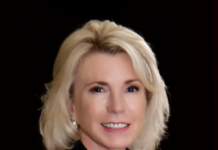Anthony Taylor Podcast Transcript
Anthony Taylor joins host Brian Thomas on The Digital Executive Podcast.
Welcome to Coruzant Technologies, Home of The Digital Executive Podcast.
Brian Thomas: Welcome to The Digital Executive. Today’s guest is Anthony Taylor. Anthony Taylor is the CEO and Senior Strategic Planning Facilitator at SME Strategy. He holds a degree in Business Administration as well as a Certified Associate in Project Management from the Project Management Institute.
Anthony has an entrepreneurial background with more than 10 years of experience running his own small business in various industries. In his book, I wish I knew, he shares his best tips for being an entrepreneur. In 2016, Anthony was chosen as global entrepreneurship week ambassador for Canada and SME strategy was awarded the palm blue for micro enterprise of the year from the French chamber of commerce.
Well, good afternoon, Anthony. Welcome to the show!
Anthony Taylor: I’m excited to be here. Thanks so much, Brian!
Brian Thomas: Absolutely. I appreciate you making the time. And again, that’s going into the evening hours here in Kansas city, but I know you’re calling out of the great province there, state, whatever you want to call it in Canada, British Columbia. So, I really do appreciate you traversing that time zone or couple and getting on the show.
So, Anthony jumping into your first question with over a decade of experience working with small and medium sized enterprises. What are some of the most common strategic planning mistakes you’ve seen business leaders make and how can they avoid them?
Anthony Taylor: I think that without a sit down, there is no deal. And so, what I mean by that is, you know, a lot of senior leaders, CEOs. You know, they have a plan in their heads, but they often don’t take the time to explicitly work on it with their executive team, with their leadership team. And that’s kind of the foundation of many of the breakdowns within organizations, many of the breakdowns within teams and their ability to execute.
There’s the difference in understanding or perception of what is truth and what is rigor and what is completeness. And so, you know, when we talk small businesses that could look like a million-dollar company, that could look like a 10 that could look like a hundred-million-dollar company, but for the sake of our purposes, we kind of focus into that, you know, 50 to 500 million space SMEs.
And so really being able to document and clearly align. Expectations, truths and beliefs as it relates to processes and jobs and communication is the biggest thing that helps organizations. But like the biggest mistake, the biggest hindrance is assuming that everybody has the same understanding of what those things mean.
Brian Thomas: Yeah, just like those certain truths and everybody’s got their own perception of what those are. And again, if you’re one of the senior leaders or the CEO of a company, sometimes we don’t have the luxury of being inside their head and understanding the way he sees things. So, I appreciate that. And you’re absolutely right.
Communication is at the heart of it. So, thank you. And Anthony, in your book, I wish I knew you offer insights into entrepreneurship; I appreciate it. If you could go back in time and give yourself one piece of advice as a young entrepreneur, what would it be
Anthony Taylor: the number one thing for me was, I guess, patients I went through and looked through my documentation and all the like goals and things that I wrote down.
And, you know, I’m only a decade off of them, but the flip side, if that is the best advice, would be like, keep going. It’s hard as a young person, it’s hard as a businessperson, it’s hard as an ambitious person to set goals and, you know, work towards them. But even in my job as a strategic planning facilitator, well, I literally help organizations write down their goals and work through it.
You know, the process has been invaluable for me and really helping our clients get to where they want to go. It’s really about getting it on paper and, and just doing the work. There’s no there’s no shortcut for entrepreneurs to get through here. It’s a hard job, but you know, perseverance is, is one of those golden things that obviously isn’t as tangible as others might want to hear right now.
Brian Thomas: Thank you. I appreciate that. You’re absolutely right. And, and even some of the most organized or even the most ambitious people sometimes tend to forget that a goal setting is so important, but the people that are getting it done obviously have goals that they set and they see every day and they work towards.
So, thank you. And Anthony, as a global entrepreneurship week ambassador for Canada, how did that experience shape your perspective on entrepreneurship and its role in driving global innovation?
Anthony Taylor: Well, I think it’s really interesting. So being a Canadian province of BC, it’s a small town, it’s a village over here.
And so, recognizing the difference and the dichotomies and similarities of, of entrepreneurship in Canada. You know, I think it’s really important that Canada. Develops itself to export because we’re a small enough market. The benefit of being the Canadian ambassador for entrepreneurship week was that I got to travel across to much smaller provinces to me, a lot of various different entrepreneurs got to look at the ecosystems that exist to support entrepreneurship.
I think that you know, the more. Ecosystems that can be set up, the more likely it’ll be to create kind of innovation within the country. But, you know, it’s a different game now with you know, call it post pandemic and with the changes in technology. So, you know, Canada itself needs to invest in itself and really for any entrepreneurs looking at how you can.
Build within an ecosystem. That’s why I like ecosystems like Silicon Valley did so well is because you have proven organizations and teams and companies and talent that have kind of been there, done that and grown big businesses. And so, I think, you know, whether you’re in Canada or in the US, you know, building that ecosystem for yourself is critical to progress, which is really what innovation is.
Brian Thomas: Thank you. And obviously having some of that broader experience of going to these other communities and, and representing through that global entrepreneurship week ambassador, I think that obviously gave you some insights to some things that you may have seen or not been exposed to, but I appreciate the share really do.
Anthony, with the rapid evolution of business practices and technology, what do you think the future holds for strategic planning in small businesses? How should leaders adapt to stay competitive?
Anthony Taylor: When I started doing strategic planning as a younger person, early-stage professional, a lot of folks were saying, here’s our five year plan.
Here’s our five-year document. Here’s our 10-year plan. But with the speed and change of technology and evolution of business practices, you know, businesses need to have a more iterative approach, potentially lean approach. To strategic planning and implementation. You can’t have a five-year plan because every year there seems to be some different macroeconomic macro tension, whether it’s technological, social, legal, environmental, or otherwise.
And so your ability, your leadership team’s ability to adapt and take advantage of those trends, as well as. adapting and differentiating from competitors because there’s more and more competitors every day. There’s nichier and nichier competitors every day. And so, an organization’s ability to not only deal with macro trends, but also to continually refine, adapt, and improve its value proposition would be the two keys to success for any adaptive organization in the future.
Brian Thomas: Thank you. I appreciate that. And we’ve all been there. I’ve been in several boardrooms and around the table at the C suite, and we’ve always done those four or five and six-year strategic plans. And we find that we need to be more adaptive and plan for some of that adaptability that there’s just a lot of unforeseen things that, as you know, come up through the business cycle.
So I appreciate that, Anthony, it was such a pleasure having you on today and I look forward to speaking with you real soon. Thank you so much.
Anthony Taylor: Pleasure was all mine.
Brian Thomas: Bye for now.
Anthony Taylor Podcast Transcript. Listen to the audio on the guest’s podcast page.











